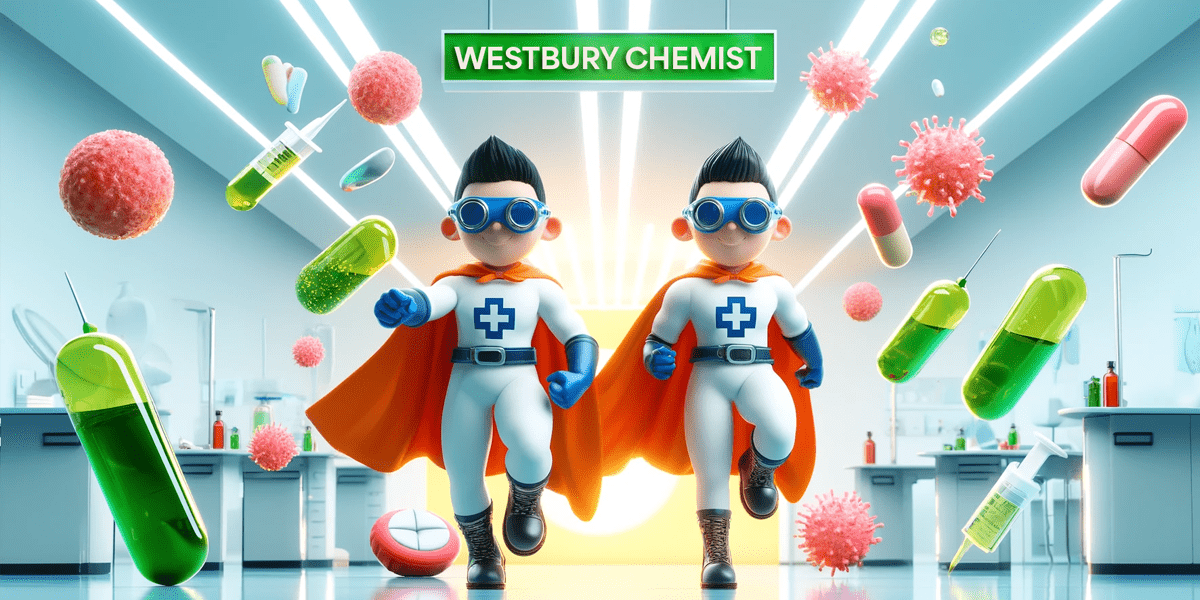
Antibiotics are an indispensable asset in contemporary medicine, essential for treating bacterial infections and curbing their proliferation. Nevertheless, their improper use and overprescription have given rise to significant issues, notably antibiotic resistance. In this extensive guide, we delve into the mechanisms of antibiotics, the timeframes for their effectiveness, and the optimal practices for their administration. This guide is tailored for a UK audience, incorporating specific references to NHS guidelines and healthcare practices within the UK.
What Are Antibiotics?
Antibiotics are vital medications designed to combat bacterial infections. They function by either destroying bacteria or impeding their growth. With a variety of antibiotics available, each is tailored to target specific bacterial strains. For optimal effectiveness, selecting the appropriate antibiotic for each specific infection is crucial.
How Do Antibiotics Work?
Antibiotics operate by disrupting essential bacterial processes, such as cell wall synthesis, protein production, or DNA replication. By obstructing these vital functions, antibiotics can either directly kill bacteria (bactericidal) or inhibit their growth (bacteriostatic), thereby enabling the immune system to eradicate the infection.
How Long Do Antibiotics Take to Work?
The timeframe for antibiotics to become effective can vary based on the infection type, its severity, and the specific antibiotic prescribed. Typically, one might begin to notice improvement within a few days of commencing treatment. Nonetheless, it is essential to complete the entire prescribed course to ensure the infection is thoroughly eradicated and to prevent the development of antibiotic resistance.
- Tooth Infection: Improvement is often seen within 48-72 hours, but completing the course is essential.
- Tonsillitis: Symptoms may begin to improve in 2-3 days, but the full course should be taken.
- Chest Infections: Relief can start within a few days, but a full course (usually 7-14 days) is necessary.
- UTIs: Symptoms can improve within a day or two, but finishing the prescribed duration is crucial.
What’s Antibiotic Resistance?
Antibiotic resistance occurs when bacteria evolve and become immune to the effects of an antibiotic. This makes infections harder to treat and increases the risk of spread, severe illness, and death. Resistance can develop through misuse, such as not completing a prescribed course, using antibiotics for viral infections, or using someone else’s prescription.
When Are Antibiotics Needed?
Antibiotics are needed for bacterial infections such as strep throat, urinary tract infections, and certain types of pneumonia. They are not effective against viral infections like the common cold, flu, or COVID-19. It’s vital to have a healthcare professional diagnose the infection and prescribe the appropriate treatment.
Can a Cold Be Treated with Antibiotics?
No, antibiotics are ineffective against colds, which are caused by viruses. Using antibiotics for a viral infection contributes to antibiotic resistance and unnecessary side effects.
Can Antibiotics Help with COVID-19?
COVID-19 is caused by a virus, so antibiotics are not effective. However, antibiotics may be used if a secondary bacterial infection occurs in a COVID-19 patient, as determined by a healthcare provider.
How Are Antibiotics Taken?
Antibiotics can be taken in various forms, including tablets, capsules, liquids, injections, and topical applications. The method of administration depends on the type of infection and its severity. Always follow your healthcare provider’s instructions on how to take your antibiotics.
Tips for Taking Antibiotics Safely
- Forgetting a Dose: Take the missed dose as soon as you remember, unless it’s almost time for the next dose. Do not double up to make up for the missed dose.
- Stick to the Recommended Dose: Taking more than prescribed does not speed up recovery and can cause harmful side effects.
- Always Check the Label: Follow the instructions carefully, including whether to take with food or on an empty stomach.
- Finish the Course: Complete the entire course as prescribed, even if you feel better, to ensure all bacteria are eliminated.
- Don’t Share Antibiotics: Prescriptions are specific to your condition and sharing can lead to improper use and resistance.
- Try Probiotics: They can help maintain gut health during and after antibiotic treatment.
What Can Be Done to Prevent Antibiotic Resistance?
- Only Use When Necessary: Take antibiotics only when prescribed by a healthcare professional.
- Follow Prescriptions Precisely: Complete the entire course and adhere to the instructions.
- Educate Yourself: Understand the importance of proper antibiotic use and the dangers of resistance.
How Can I Prevent Infections So I Don’t Need Antibiotics?
- Hygiene: Regular handwashing with soap.
- Vaccinations: Stay up to date with recommended vaccines.
- Safe Food Practices: Properly cook and store food.
- Healthy Lifestyle: Maintain a balanced diet, exercise regularly, and get adequate sleep.
Tips for Maximising the Effectiveness of Your Antibiotics
- Adhere to Schedule: Take your antibiotics at the same time every day.
- Diet and Lifestyle: Avoid alcohol and certain foods that can interfere with antibiotic effectiveness.
- Hydration: Drink plenty of water to help your body process the medication.
How Do You Know if Antibiotics Are Working?
Signs that antibiotics are working include reduced fever, less pain, and decreased redness or swelling. If symptoms do not improve within a few days or worsen, contact your healthcare provider.
What Conditions Do Antibiotics Treat?
Antibiotics are used to treat various bacterial infections, including:
- Respiratory Infections: Pneumonia, bronchitis.
- Skin Infections: Cellulitis, impetigo.
- Ear Infections: Otitis media.
- Gastrointestinal Infections: Bacterial gastroenteritis.
- Sexually Transmitted Infections: Chlamydia, gonorrhoea.
When You Should Not Use Antibiotics
Do not use antibiotics for viral infections like the common cold, flu, or COVID-19 unless prescribed for a secondary bacterial infection. Avoid using leftover antibiotics or someone else’s prescription.
Types of Antibiotics
There are several types of antibiotics, each targeting different bacteria. Common classes include:
Penicillins
- Examples: Amoxicillin, penicillin
- Uses:
- Amoxicillin: Ear infections, throat infections (strep throat), skin infections.
- Penicillin: Dental infections, strep throat, syphilis.
- Side Effects:
- Nausea
- Diarrhoea
- Allergic reactions (rash, itching, swelling, severe dizziness, trouble breathing)
Cephalosporins
- Examples: Cefalexin
- Uses: Respiratory tract infections, skin infections, urinary tract infections.
- Side Effects:
- Stomach upset
- Diarrhoea
- Rash
- Potential allergic reactions (similar to penicillins)
Macrolides
- Examples: Erythromycin, azithromycin
- Uses:
- Erythromycin: Respiratory tract infections, skin infections, certain sexually transmitted infections.
- Azithromycin: Respiratory infections, ear infections, some sexually transmitted diseases.
- Side Effects:
- Gastrointestinal upset (nausea, vomiting, diarrhoea)
- Abdominal pain
- Possible liver enzyme changes
- Rarely, heart rhythm changes
Fluoroquinolones
- Examples: Ciprofloxacin
- Uses: Urinary tract infections, respiratory tract infections, gastrointestinal infections caused by bacteria.
- Side Effects:
- Nausea
- Diarrhoea
- Headache
- Dizziness
- Increased risk of tendonitis and tendon rupture
Tetracyclines
- Examples: Doxycycline
- Uses: Acne, respiratory tract infections, Lyme disease, some sexually transmitted infections.
- Side Effects:
- Photosensitivity (increased risk of sunburn)
- Gastrointestinal upset
- Teeth discoloration in children and infants
- Potential for esophageal irritation or ulceration
Aminoglycosides
- Examples: Gentamicin
- Uses: Severe infections like sepsis, hospital-acquired infections, infections caused by gram-negative bacteria.
- Side Effects:
- Kidney damage (nephrotoxicity)
- Ear damage (ototoxicity), which can lead to hearing loss
- Muscle weakness
These antibiotics are powerful tools against bacterial infections but must be used correctly to avoid resistance and minimise side effects. Always follow your healthcare provider’s instructions and complete the prescribed course.
Conclusion
Antibiotics are indispensable in the fight against bacterial infections, providing relief and curing illnesses that once posed significant threats to public health. Understanding how antibiotics work, the importance of adhering to prescribed courses, and the potential side effects can empower you to use these medications responsibly. Awareness of antibiotic resistance and measures to prevent it is crucial for maintaining their effectiveness for future generations.
In the UK, adhering to NHS guidelines and consulting with healthcare professionals ensures the proper use of antibiotics. By following safe practices, such as not using antibiotics for viral infections, completing prescribed courses, and preventing infections through good hygiene and vaccination, you can contribute to a healthier community.
For further information or personalised advice on antibiotics, consider booking an appointment with a pharmacist online or downloading our app for convenient prescription management. Your health and well-being are our top priority, and we’re here to help you make informed decisions about your healthcare.
Stay informed, stay healthy, and always use antibiotics responsibly.


